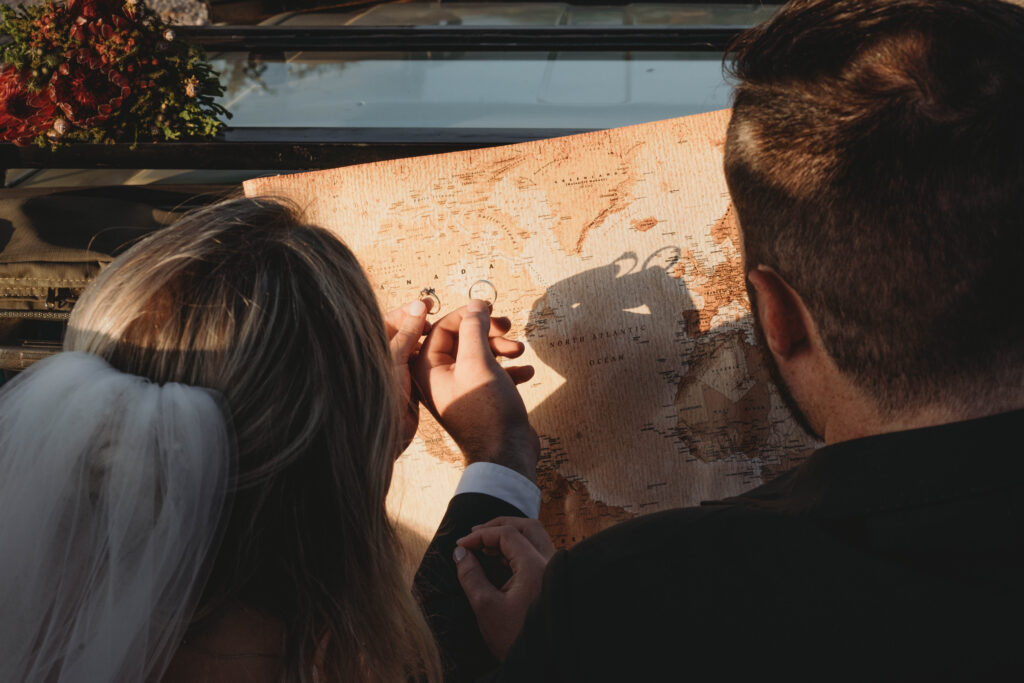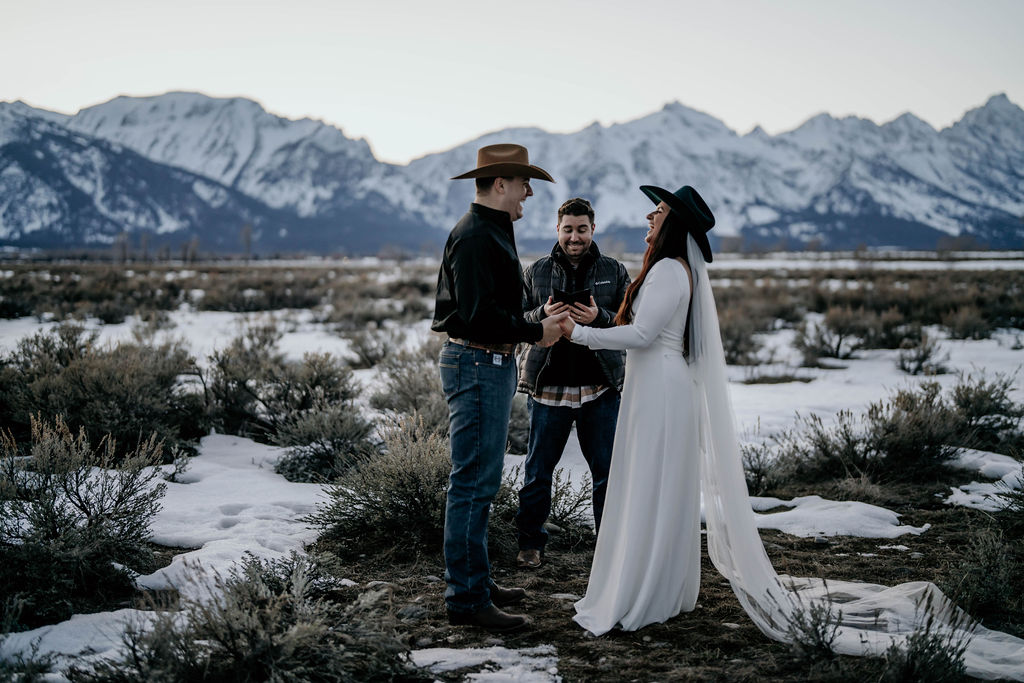
Legal Process for an Elopement
One of the most common questions about elopement is what is the legal process and paperwork like? Unfortunately, the answer to this question is not so cut and dry. The requirements for an elopement marriage license are different in every state and every country. There are some specific things to think about and look for when researching the marriage license requirements of your destination.
1. Residency Requirements:
Some states or countries require that you are staying in the country for a certain amount of time before the marriage. For example, in France, you have to be a resident for 40 days before the official marriage ceremony, and in Nepal you have stay in the country for two weeks before. Whereas, in places like Las Vegas, there is no residency requirement and you can get married the same day you arrive.
2. Waiting Periods:
Some locations may require you to wait a certain amount of time between obtaining the marriage license and the actual ceremony. For example, you must wait 3 days in Alaska after obtaining the license, but you don’t have to wait at all in Montana.
3. Documentation Requirements:
As with all the requirements, the documentation for a marriage license differs in each location. However, some basic things you will need are a photo ID like a driver’s license or passport, birth certificate, divorce decree if applicable, and of course, the fee. In some countries, a blood test may also be required, though most places have done away with this requirement.
4. Officiants and witnesses:
Some states and countries require officiants and witnesses to be present at the ceremony, while others allow for self-solemnization. This is when you marry yourself, without the need for an officiant. For this type of marriage, after the ceremony, you usually most present a Declaration of Marriage to the courthouse where the couple can bring witness of their own, or the witness can be the Clerk of Court.
5. Where to get the marriage license:
Generally, you can bet that the court house and/or the county clerk is a good place to go for the marriage license. However, there are some other places to go in certain states. For example, in Alabama, you can get your marriage license at the local health department. Though in South Africa, you must go to the Department of Home Affairs.
6. Legal Recognition:
This mainly applies to weddings abroad. However, it is important that you know the steps needed to get legal recognition of marriage in your home country. If there are any – it is not usually necessary in the US. In regards to legality, marriages from all countries are recognized in the US as long as they abide by the laws of the country. For example, polygamous marriages would not be recognized even if completed legally abroad. Generally, there is no need to validate or register your marriage once you return to the USA. If when you get home you need proof of the validity of your foreign marriage, you can reach out to the attorney general of your state for specific information. In other countries, it might be necessary to register your marriage and the process may be different.

I wish I could give you exact information for your elopement destination, but, unfortunately, bureaucracy likes to make things difficult. I hope this list gave you some valuable information about the types of information you should look into when planning the logistics for the elopement. Reach out if you’d like to get started planning an elopement!
Be the first to comment